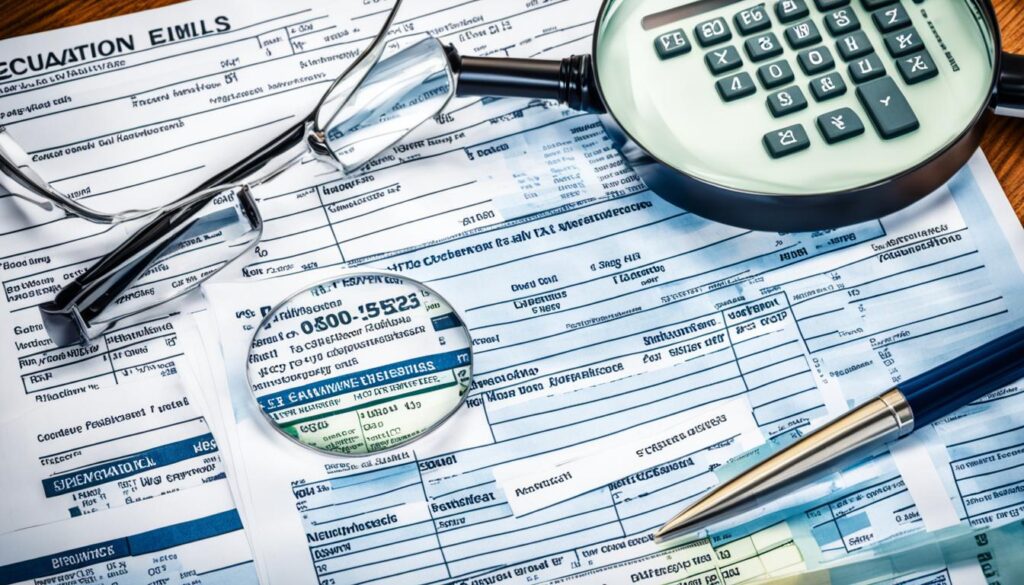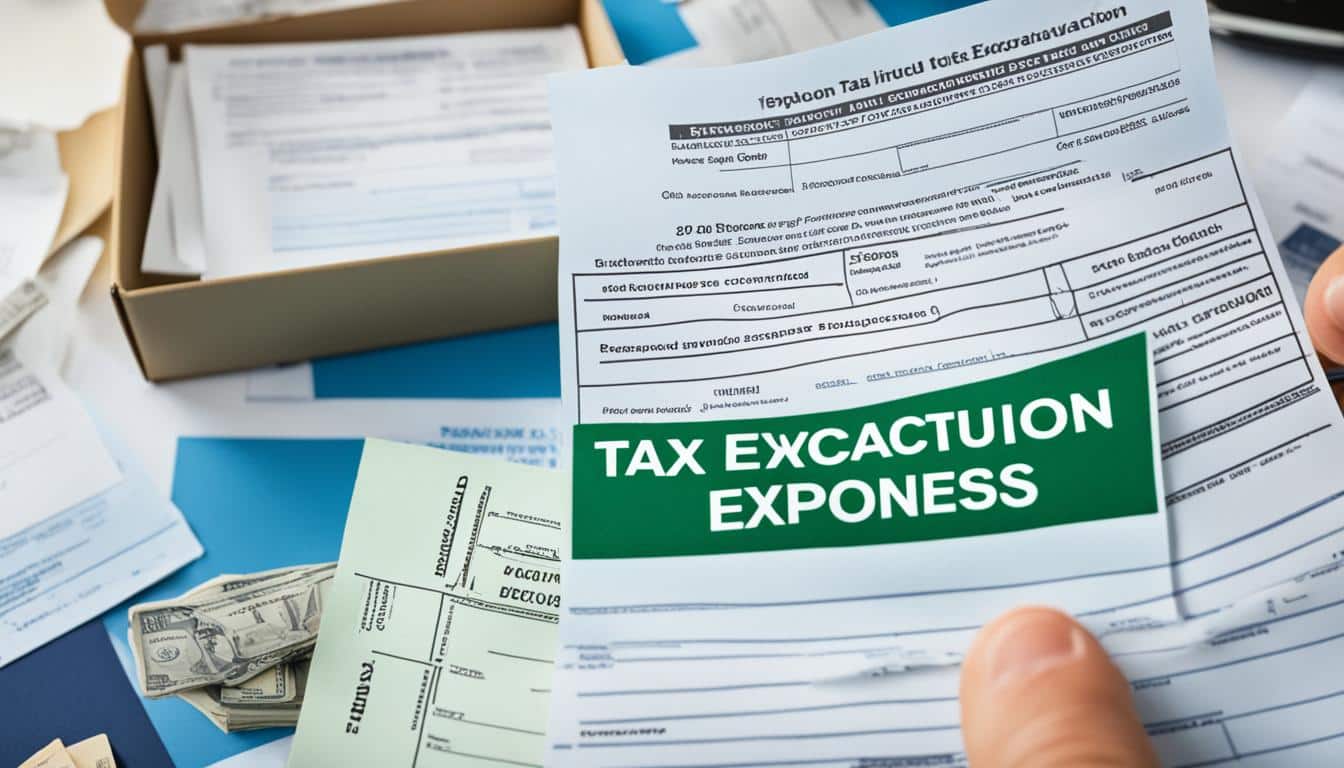Imagine a hurricane or wildfire makes you leave home. You face unexpected costs. Now, you might wonder: can I get a tax break for my evacuation expenses? It’s important to understand what costs are deductible. This includes where you stayed, what you ate, and even special medical flights. If your home falls in a disaster area, you could get more relief.
Key Takeaways
- Evacuation expenses due to disasters may be tax deductible.
- Accommodation and meals during evacuation are commonly queried deductions.
- Medically supervised evacuation flights are a special consideration.
- Federal disaster declarations can significantly influence tax benefits.
- Proper documentation is essential for claiming deductions.
Understanding Tax Deductions for Evacuation Expenses
Understanding tax deductions on evacuation costs is key to recovering financially after a disaster. Knowing which costs you can claim can make a big difference.

Types of Evacuation Expenses and Their Eligibility
Emergency evacuation expenses that can be deducted cover a wide range. Expenses on lodging, food, getting around, and keeping personal items safe count. But, you need to show these expenses were necessary and linked to the evacuation to qualify for a tax break.
Rules for Claiming Evacuation Costs as Deductions
You must follow strict rules and keep good records to claim evacuation expenses. If your insurance covers some costs, you can’t deduct them. Normally, you deduct these in the year you had the expenses. But, after a federal disaster, you may update your past year’s return to get your money back quicker.
Impact of Federal Disaster Declaration
A federal disaster declaration changes the game for evacuation expense deductions. When this happens, the IRS can give you more time to file and offer other benefits. This means you might have more ways to claim your expenses and get tax breaks.
| Expense Type | Eligibility |
|---|---|
| Temporary Lodging | Eligible if directly related to the evacuation |
| Meals | Eligible if necessary during evacuation |
| Transportation | Eligible if essential for evacuation |
| Securing Personal Property | Eligible if costs are necessary and documented |
Are Evacuation Expenses Tax Deductible?
Figuring out if you can deduct evacuation costs from your taxes is complex. You must know if the expense is for personal or business use. Additional living expenses during evacuations, like more spending on food and sleep, might be tax deductible. But if your insurance pays for them, you can’t deduct. Also, money spent on non-essential things doesn’t qualify for a tax break.
Examples of Deductible and Non-Deductible Expenses
It’s important to know what counts for a tax break on evacuation costs. Here’s what is and isn’t deductible:
- Deductible Expenses: Increased utility bills, temporary lodging, and meals if these exceed your usual costs and aren’t covered by insurance.
- Non-Deductible Expenses: Non-essential service costs, regular home bills not tied to the evacuation, and personal items like fun expenses aren’t deductible.
Case Study: Hurricane Ian Evacuation Costs
Let’s explore how the rules applied during Hurricane Ian’s evacuation. People had to spend a lot on places to stay and eat during the evacuation. Some could get a tax break for these costs. But, remember, insurance-covered costs and spending on fun stuff doesn’t qualify for a deduction. This case shows that knowing the tax rules can help you claim what’s fair.
Documenting and Filing Your Claims
Filling out your claims for evacuation costs is key during tough times. Detailed records can up your chances for tax deductions and quicker refunds.
Keeping Detailed Records
To claim evacuations and get tax breaks, detailed records are crucial. Save your receipts, bank statements, and any home inventory. Having these things can back up your requests for extra living costs and property losses from evacuations. Also, don’t forget to include photos and videos. They really support your claims well.
Filing Amended Returns for Faster Refunds
For those hit by evacuations in disaster areas, filing amended returns can help. It might make you get your refund quicker. The IRS has specific forms for this. In disasters, they fast-track these requests to help you gather your documents fast. Remember, this makes the whole process smoother.
Here’s a quick look at what to document and file:
| Item | Documentation Needed |
|---|---|
| Temporary Lodging | Receipts, bank statements |
| Meals | Receipts, detailed expense logs |
| Transportation | Travel itineraries, fuel receipts |
| Property Losses | Home inventory, photographs, videos |
Conclusion
Understanding deductible evacuation expenses is key post-disaster. Not all costs are tax deductible, so knowing what fits the bill can save you time and worry at tax time. Making sure to claim eligible fees for evacuation can help you get all the money back you can.
Each evacuation is unique, with its own issues. Figuring out if you can deduct your evacuation costs means looking closely at what happened to you. Remember, not all costs will fit the IRS rules for deduction, so keep good records of everything you spend. This tracking can help cut your taxes by a lot.
Dealing with taxes can be hard, but you don’t have to figure it out by yourself. A tax expert can help you understand and make smart choices about what you can deduct. With good records and knowing your rights, paying for emergency evacuations gets easier. Keep learning and being ready for tax time to reduce your worries.








